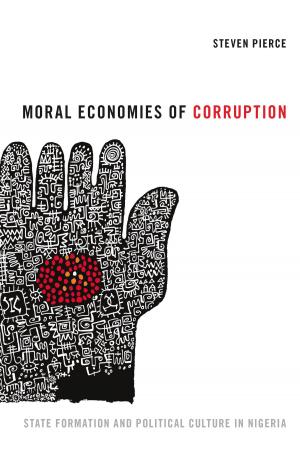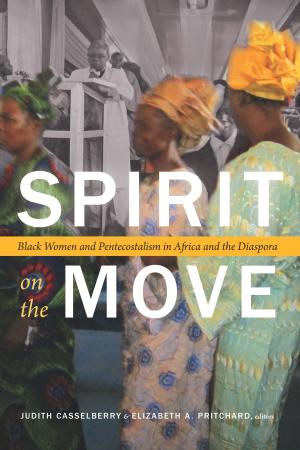The War Machines
Young Men and Violence in Sierra Leone and Liberia
Nonfiction, Social & Cultural Studies, Social Science, Anthropology| Author: | Danny Hoffman | ISBN: | 9780822394488 |
| Publisher: | Duke University Press | Publication: | September 16, 2011 |
| Imprint: | Duke University Press Books | Language: | English |
| Author: | Danny Hoffman |
| ISBN: | 9780822394488 |
| Publisher: | Duke University Press |
| Publication: | September 16, 2011 |
| Imprint: | Duke University Press Books |
| Language: | English |
In The War Machines, Danny Hoffman considers how young men are made available for violent labor both on the battlefields and in the diamond mines, rubber plantations, and other unregulated industries of West Africa. Based on his ethnographic research with militia groups in Sierra Leone and Liberia during those countries’ recent civil wars, Hoffman traces the path of young fighters who moved from grassroots community-defense organizations in Sierra Leone during the mid-1990s into a large pool of mercenary labor.
Hoffman argues that in contemporary West Africa, space, sociality, and life itself are organized around making young men available for all manner of dangerous work. Drawing on his ethnographic research over the past nine years, as well as the anthropology of violence, interdisciplinary security studies, and contemporary critical theory, he maintains that the mobilization of West African men exemplifies a global trend in the outsourcing of warfare and security operations. A similar dynamic underlies the political economy of violence in Iraq, Afghanistan, and a growing number of postcolonial spaces. An experienced photojournalist, Hoffman integrates more than fifty of his photographs of young West Africans into The War Machines.
In The War Machines, Danny Hoffman considers how young men are made available for violent labor both on the battlefields and in the diamond mines, rubber plantations, and other unregulated industries of West Africa. Based on his ethnographic research with militia groups in Sierra Leone and Liberia during those countries’ recent civil wars, Hoffman traces the path of young fighters who moved from grassroots community-defense organizations in Sierra Leone during the mid-1990s into a large pool of mercenary labor.
Hoffman argues that in contemporary West Africa, space, sociality, and life itself are organized around making young men available for all manner of dangerous work. Drawing on his ethnographic research over the past nine years, as well as the anthropology of violence, interdisciplinary security studies, and contemporary critical theory, he maintains that the mobilization of West African men exemplifies a global trend in the outsourcing of warfare and security operations. A similar dynamic underlies the political economy of violence in Iraq, Afghanistan, and a growing number of postcolonial spaces. An experienced photojournalist, Hoffman integrates more than fifty of his photographs of young West Africans into The War Machines.















